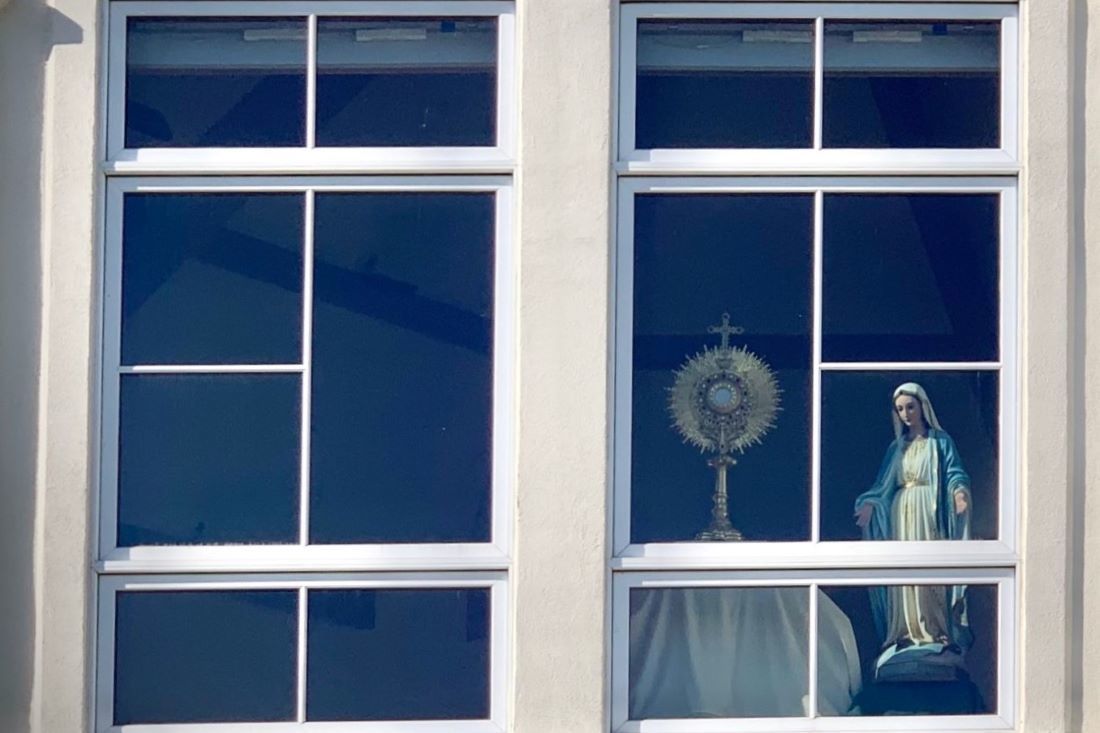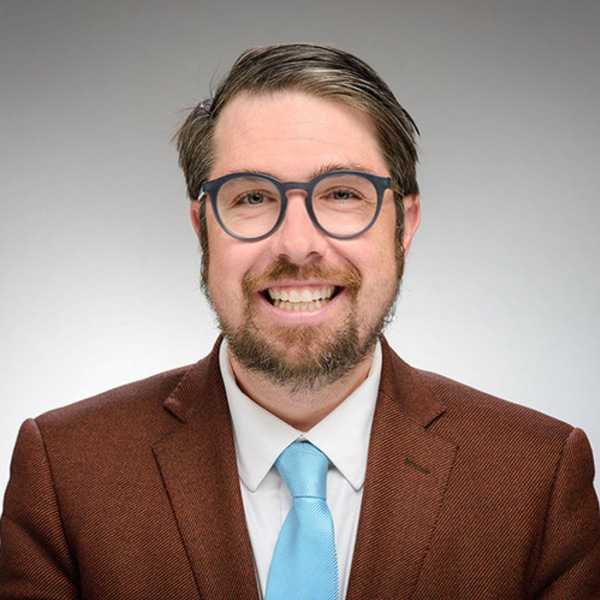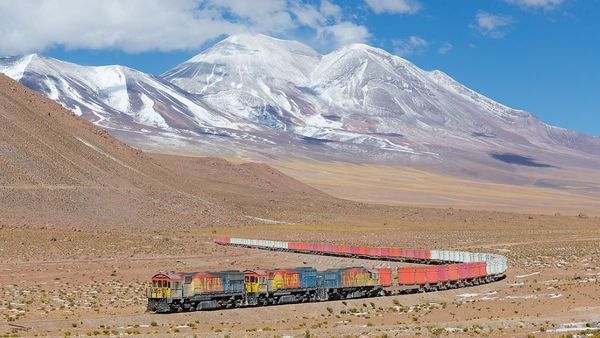Reading the news (or often editorials) surrounding COVID-19 is an invitation to paralyzing, destabilizing, debilitating terror. Models, such as the one released by Imperial College London, make clear that if the United States did nothing at all (and now we have done at least something) then 2.2 million Americans could die. Our hospitals would be overrun, forcing doctors to make decisions about who should live and die on a large scale, the kind of decisions many of these medical professionals were not trained to make.
The same model describes an 18 month period, before the advent of a vaccine, where periods of relative stability would be followed by a return to months of social distancing. The economy, reeling from the current shutdown (lasting for less than two weeks), would surely fall apart. Already, not even two weeks into this shutdown period, there has been a record filing for unemployment benefits.
This terrifying news does not consider the personal, existential fear that each American is undergoing. Is my job next? What about my loved ones? Will they survive if they get sick? How long can I go without face-to-face contact with my friends and loved ones, the very intimacy that sustains us from day-to-day? What will my life be like after months of looking at my neighbor not as a gift but as a threat?
The temptation, with all this alarming news, is to grow accustomed to the darkness. When we become comfortable with this terror, to this all-encompassing fear, we see no way out. We cease living with any hope, perceiving nothing but darkness in the actions of the State, our neighbor, even our Church.
Rusty Reno’s recent piece in First Things, “Say ‘No’ to Death’s Dominion” is an example of the kind of shadowy hermeneutics that ironically delights more in the terror of darkness than the light. The thesis of the essay is that the State, as well as the Church, have ceased functioning not for a social good but because of a fear of mortality. The State and the Church (and thus all of us) are so afraid of death that we have destroyed the economy, severed the normal bonds of physical solidarity, and made it impossible for Catholics to participate fully in the sacramental life of the Church.
For some (and this cannot be denied) the fear of death, of scarcity, and of the plague itself has been a motivating factor. We have cleared out store shelves as if humanity will never be able to procure basic goods again. Not a few citizens of the United States have lined up to stockpile weapons, afraid that we will have a collapse of the social order that will necessitate self-defense. Such fear has often been cultivated by media outlets who craft headlines designed to generate hits (a major source of income), but which also raise the anxiety level of those surfing the web.
And Reno is right on several points. He is not wrong to say that the political and social order resists considering the contingency of human life—the reality that each of us, in the end, will die. Further, quarantine is not a universal and intrinsic good in every case. What happens if it is our parents in the hospital? Will we have access to care for them or to visit with them as they approach death? How will are we willing to be apart from one another, to undergo what is required for “social distancing”?
Yet, as any good Augustinian would recognize, human action is complicated. In the presence of fearmongering, of a demonic logic of scarcity and violence that accompanies moments of crisis, nevertheless the gift of sacrificial love persists. It seems right to remember that many who are both issuing and following stay at home orders, who are voluntarily quarantining themselves, and who are staying away from the Eucharist are doing so out of love rather than fear. They are not afraid for their personal well-being or security of their families, but they are concerned about the flourishing of their neighbor, of a health system in peril, of deaths that could reach into the millions.
However, if you are operating out of hermeneutics of fear, focused exclusively on the darkness, you may miss the presence of such sacrificial love. The United States is participating in a common project that unites the citizens of East Tennessee with the residents of San Francisco. The dusty, rural towns of West Texas have something in common with the global gateway of New York City. We are not, first and foremost, Democrats and Republicans, progressives and traditionalists, but human beings (a gift of the shutdown has been the disappearance of perpetual election news). That means, we are in need of one another. We depend on the sacrificial love of our neighbor for our flourishing, and through such sacrifices of love, it’s possible that our very distant neighbor who is at risk because he’s elderly, suffers from diabetes or cystic fibrosis may live and thus contribute to our commonweal.
In his prescient Caritas in Veritate, Benedict XVI describes the vocation of the human person as gift. He writes:
The human being is made for gift, which expresses and makes present his transcendent dimension. Sometimes modern man is wrongly convinced that he is the sole author of himself, his life and society. This is a presumption that follows from being selfishly closed in upon himself, and it is a consequence . . . of original sin (§34).
The narrative—one that has dominated so much political and social discourse over the 20 twenty years in the United States—that we are all individual monads, responsible exclusively for our personal well-being, has been revealed not just as a lie but a font of sinfulness. We are connected, not just because we happen to live in a globalized society where it is easy to fly from the Wuhan Province to Los Angeles. We are connected because we were made for communion.
Of course, it is not inevitable that this spirit of communion will continue after COVID-19. In the days following 9/11, many citizens of the United States discovered anew a solidarity with their neighbor that quickly disappeared in the subsequent years. After COVID-19, it is quite possible—and here is the Augustinian speaking—that we try to get back to the dog-eat-dog world that existed before the crisis. We might say: It is time to get industry up and running, it is time to jet set the world over, it is time for growth whatever the cost.
A sacrificial orientation towards society will need to be cultivated after COVID-19. The world itself, as well as our nation, is primed for a renewal of the virtue of solidarity, of the bonds of communion that define what it means to be a human being. For the first time in decades, most of us in the United States are united in a transcendent project, a task that extends beyond my individual trip to Florida for spring break or my mimosa-filled brunch on Sunday-Funday. I am seeking the well-being of my neighbor, even if I do not know his or her name. I am offering a gift of quarantine, a gift of which there will be no immediate return.
Here, the Church has a specific vocation to place in the days after COVID-19. It is to fan the flames of this almost Eucharistic solidarity, a spirit of fraternal connection, that unites us the world over. The Church may cultivate this sacrificial love in three ways.
First, one of Reno’s claims in the First Things essay is that the Church has abandoned the faithful without the sacramental life. This is not true in two ways. The first is that many faithful priests and bishops are doing everything they can to give people access to the sacramental life. They are offering drive-thru confessions, live-streaming Masses, and risking their lives (when they can) to anoint the sick and dying.
Another reason this is untrue is simply that the faithful exist because of the sacramental life. The sacrifice of the Mass has not ceased being offered in the Church. This means that the faithful are still being presented Eucharistically on altars throughout the world. Furthermore, even when the faithful are absent from the Eucharist, at home with their families, raising money for a laid off neighbor, volunteering to work longer hours at hospitals for the care of the sick, they are still making their liturgical offering with their lives.
The concrete sacrificial existence that many of the faithful are living right now, and their deep longing for the reception of the Body and Blood of Christ, raises the possibility of a Eucharistic renewal. This renewal cannot be a private one, where reception of the sacrament is reduced to "my" experience of individual grace. Instead, the Eucharist is the sacrifice of Christ that seeks to unite all human beings in a communion of love. The more my hunger and thirst for Christ’s Body and Blood grows, the more that I long for the flourishing of my neighbor.
Second, the Church in the coming year may engage in the political sphere with a different message related to the dignity of life. That is, the Church is committed to the common good, to the flourishing of society, because we recognize the intrinsic link between solidarity and contingency, between sacrifice and the preciousness of life, between human dignity and the gift of existence. As the Compendium of the Social Doctrine of the Church clarifies:
The principle of solidarity requires that men and women of our day cultivate a greater awareness that they are debtors of the society by which they have become part. They are debtors because of those conditions that make human existence livable, and because of the indivisible and indispensable legacy constituted by culture, scientific and technical knowledge, material and immaterial goods and by all that the human condition has produced. A similar debt must be recognized in the various forms of social interaction, so that humanity’s journey will not be interrupted but remain open to present and future generations, all of them called together to share the same gift in solidarity (§195).
Because we are contingent beings (and a worldwide pandemic is highly effective in bringing this to our attention), nothing we have belongs to us. The first breath that we take has been given to us by our parents. The first word that we utter has been offered to us from a society, a language that preceded our existence. All is gift.
Some politicians, who are otherwise pro-choice, have begun to use this language. They do not yet understand the underlying logic of their claim. If we can shut down restaurants, professional sports leagues, businesses, and every dimension of society to save a single life, then why can we not find a way to save the life of a single unborn child? To support families who seek to offer life to children? A migrant who has come to the borders? To care for the elderly who are tempted to pursue assisted suicide because they are treated not as a gift but as a burden?
Life is a gift, and the fact that it can so easily disappear (something too many residents of the United States have forgotten until now) could lead to a consistent ethic of life grounded in a society committed to gratitude. The Church, which was born from the side of Christ, whose members received the gift of baptism, who are saved through a love that preceded them, can offer something to a polis re-learning a posture of gratitude, an economy of generosity rather than of scarcity.
Third, the Church also may offer to humanity a vision of the human condition as grounded in both the local and the universal. An economy that is entirely globalized, outsourced to other nations, was always a foolhardy decision. It enabled companies to take advantage of cheap labor, but it also led these companies to exist apart from the local. Delta, for example, may be based in Atlanta, but does it matter? Apple can call everywhere home and often does.
Over the last weeks, we have rediscovered (by necessity) the importance of the neighborhood. When you are no longer commuting to work, when you are not able to hop into a car and visit with friends, you learn to see the gift of those around you. You learn the value of where you live.
At the same time, this rediscovery of the local comes with a concomitant danger. It could lead to the kind of parochialism whereby “we” see ourselves as better than “them.” We grow inward, losing a sense of solidarity with the human family at large. We think only of ourselves.
The Church is good at dealing with the relationship between the local and the global. Despite my fidelity to the Pope, he is not really my pastor. My pastor is Msgr. Bill. The Church is not some global, distant reality for me; it is St. Pius X Parish. It is the concrete boundaries of Granger, IN. All human beings within the parish bounds are called to adore the living God at the Eucharistic altar. But St. Pius X is not a unique community, apart from all others. It is in relationship with the entire Body of Christ, the Church scattered throughout the world.
It is the Church’s gift of seeing the interrelationship between the particular and the universal that we can offer after COVID-19. I practice the virtue of universal solidarity not through thinking pious thoughts or tweeting out a nice sentiment. I practice this virtue when I donate money to those who were laid off, when I concretely love those whom I have been given to love.
In conclusion, there is a temptation to grow overly fond of the darkness, to look at the crisis right now, and perceive only dread. And yet, if we gaze at the world with the eyes of faith, hope, and love, we can see the presence of a sacrificial love that may lead to a social renewal grounded in solidarity and communion. Of course, this is not inevitable. We may fall back into old habits, thinking only about ourselves. Here, the lay faithful’s fasting from Eucharistic Communion may in fact be a preparation for the next renewal that the Church will facilitate. The good news, I suppose, of COVID-19 is that nevertheless, sacrificial love persists.


